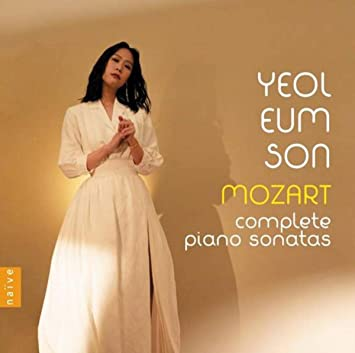Multi-stylistic piano poet Sarah Cahill chimes in with her Third Volume of The Future is Female, At Play (FHR 133) which provides us with some nine female composers and their compositions in a creative vein, with a wealth of inventions ranging from the period around 1700 through to today. What is rather exhilarating about it is the significant form of it all and its diversity of stylistic means according to the varying historical-stylistic musicways at hand.
Beginning with the elegant Classicism of Helene de Montegeroult (1764-1836) and her three-part Piano Sonata No, 9, to the meditative Eastern Modernism prepared piano of Franghiz Ali-Zadeh (b. 1947) and her :Music for Piano," we experience myriad possibilities of an expressive but also exploratory set of works that leaves you satisfied yet wanting still more. And of course that can be had in the earlier volumes of this project. I will be posting presently on Volume Two as well. Stay tuned.
In the course of the current program we are exposed readily and superlatively to some six additional gems by woman composers now known and some still relatively unknown. So we get pieces by Cecile Charminade (1967-1944), Grazyna Bacewicz (1909-1969), Chen Yi (b. 1953), Pauline Oliveros (1932-2016), Hannah Kendall (b 1984), Aida Shirazi (b. 1987), and Regina Harris Baiocchi (b. 1956). It is all substantial fare, worthwhile and as you experience it a treasure trove of woman composers worthy of our attention. Ms, Cahill triumphs as she does throughout the series as a whole, Highly recommended.
To choose repertoire is to be a kind of music curator. Ms. Cahill is a wonderful curator in addition to being an outstanding pianist Bravo.
Listen to samples of it here. https://www.facebook.com/watch/?v=1324359321721082



